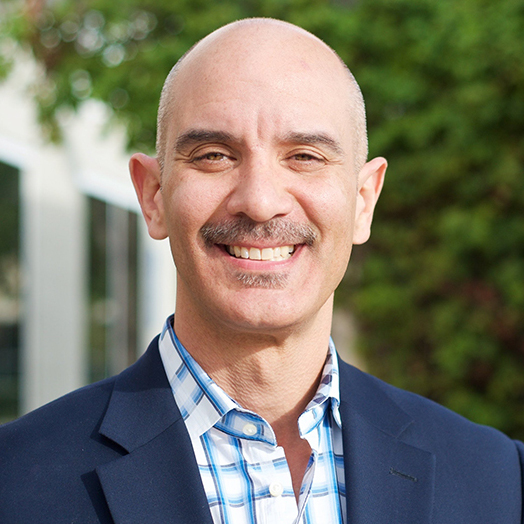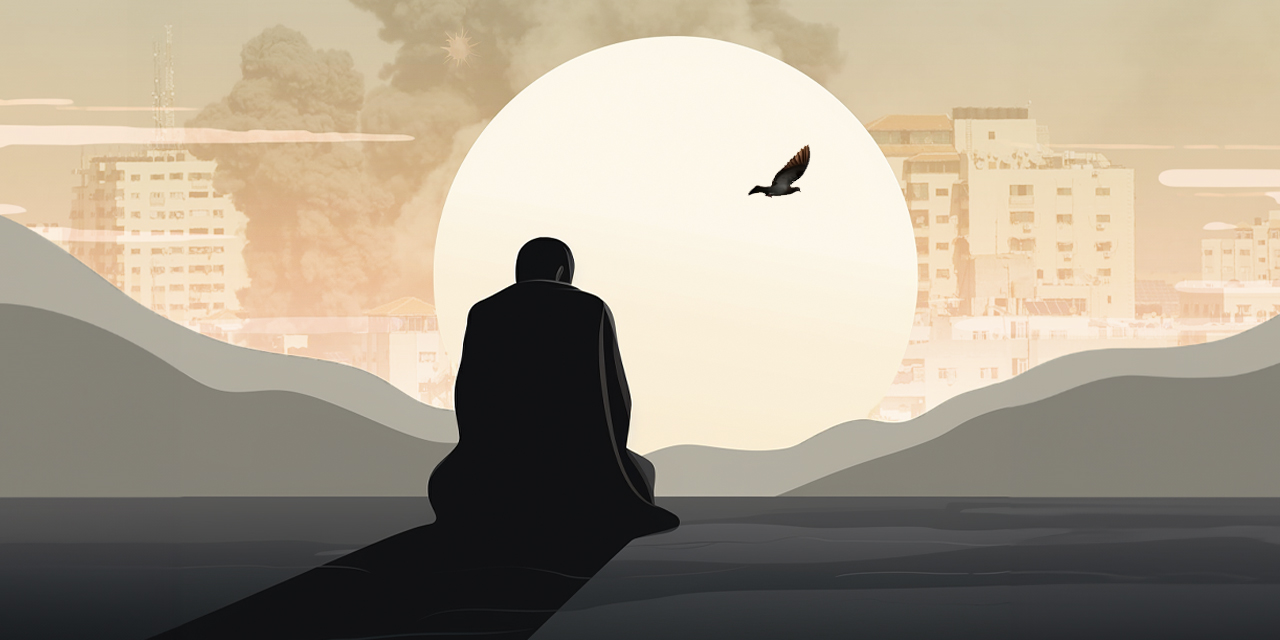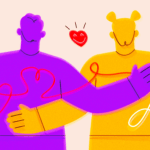
Fraser Venter
Fraser Venter, D.Min., is the strategic catalyst for love-driven justice on the Free Methodist Church USA Executive Leadership Team. He previously served as the lead pastor of Cucamonga Christian Fellowship in Rancho Cucamonga, California, and as a superintendent of the Free Methodist Church in Southern California. He earned his Master of Divinity and Doctor of Ministry degrees at Azusa Pacific University, and he is currently enrolled in the Master of Arts in Justice and Advocacy (MJA) program at Fuller Theological Seminary.
By Fraser Venter
I woke up today, yesterday, and countless days before in peace — not with the sound of sirens, screams, or armed stingers. I have the gift of waking up without the invasion of those noises. Not that my life is noiseless, but my noises don’t cause me to run, hide, shelter, duck, or be afraid. Peace is a gift to which I don’t pay enough attention, and too often take for granted.
_
“If I could package my gift to those in this tragic conflict, I would because everyone deserves to wake up with the gift of grace and peace.”
_
Around the world, Israeli and Palestinian mothers, fathers, daughters, sons, singles, married, lovers, friends, strangers, and soldiers are not awakening to or experiencing peace. If I could package my gift to those in this tragic conflict, I would because everyone deserves to wake up with the gift of grace and peace.
So what do we do when this gift is not being felt, seen, or experienced in the Middle East? Do we retreat? Do we go numb? Do we blame? Do we yell or weep? Do we give and engage? Do we post? Do we prophesy? Do we pray? Yes! Why? Because that is what lament does.
Dr. Mary Glenn from Fuller Theological Seminary states, “Lament is the practice of naming and navigating personal and communal pain, longing, and loss, especially in relationship to vocation, calling, and God’s shalom work.” A practice, I might add, that we Christians don’t do often enough. We have been discipled to see only victory but not look at the blood and scars to attain it.
Lament includes a loud cry, a howl, or a passionate expression of grief, but biblically, it is more than sorrow or talking about sadness. It is more than walking through the stages of grief. Lament is a prayer in pain that leads to trust. Lament is our path through brokenness, war, death, fear, confusion, hopelessness, and disappointment. Mark Vnoegop in “Dark Clouds, Deep Mercy” says it best: “It (lament) is the path from heartbreak to hope.”
_
“Lament does not choose to tune out those noises but embraces them and blends them with our own voices albeit groaning.”
_
Lament is not a quick antidote to the noises of war, chaos, bombings, hunger, hostages, senseless death, grief, and loss. Lament does not choose to tune out those noises but embraces them and blends them with our own voices albeit groaning.
Lament may call us to turn off the news reports (especially our favorites) and the noise that is causing our souls to tangle.[1] Lament may call us to turn down the noise of hate speech, nationalism, and quick solutions so that we may hear the voice of the Ancient One[2] Who has seen and listened to endless “news reports” since creation began. And He will answer all questions when the news reports of this earth are completed. After all, He is the God who sees, hears, and acts.
_
“God, who is everywhere, never leaves us.” – Thomas Merton
_
Lament creates its own noise by adding our voices to the heart cries of those in the Middle East. It may be similar in volume and content, but our voices will be rooted in the lament Psalms pattern that begins with questions, complaints, and confusion. “God, where are You and what are You doing?” Thomas Merton says, “God, who is everywhere, never leaves us. Yet He sometimes seems to be present, sometimes absent. If we do not know Him well, we do not realize that He may be more present to us when He feels absent than when He is present.”
Then, our lament creates a new sound that rises above the sirens, screams, and stingers with the boldness of our request and petitions to remember who God is. Todd Billings, in his book “Rejoicing in Lament,” helps us understand this foundational point: “It is precisely out of trust that God is sovereign that the psalmist repeatedly brings laments and petitions to the Lord. … If the psalmists had already decided the verdict — that God is indeed unfaithful — they would not continue to offer their complaint.” If our laments don’t rise to this volume of trust, they descend into broken whispers of despair.
_
“Lament causes us to slow down and recognize the story is broader, deeper, and more complex than a news report or our geopolitical and theological biases.”
_
Again, Vroegop states it powerfully, “Therefore, lament is rooted in what we believe. It is a prayer loaded with theology. Christians affirm that the world is broken, God is powerful, and He will be faithful. Therefore, lament stands in the gap between pain and promise. To cry is human, but to lament is Christian.”
Lament causes us to slow down and recognize the story is broader, deeper, and more complex than a news report or our geopolitical and theological biases. It is historical in scope, and every decision made has long-lasting repercussions on the Middle East and our entire globe.[3]
Lament allows our petitions to move beyond the noise of bias to recognize that real people — widows, orphans, immigrants, the impoverished, wealthy, enemies, strangers, the oppressed, the marginalized, soldiers, and civilians alike are all part of this conflict. And, like an actor on stage who has forgotten their lines because they are shocked by the violence, we in our lament must be the whispers on the side feeding lines of hope, peace, grace, justice, mercy, forgiveness, love, and righteousness.
Lament takes our whispers to God’s ear and then returns His voice back to those in the middle of the chaos.
Lament cries out for compassion, mercy, and justice. Lament weeps with both sides until the tears become healing waters for peace to flourish. The battle in the Middle East is often over the phrase from the “river” to the “sea.” May our tears of lament begin to create new waterways of shalom.
_
“Lament does not leave us in the noise but gives us space to add the sounds of justice, mercy, compassion, hope, and love.”
_
Lament amid our grief causes us to remember that the kingdom of God is without borders yet is not blind to the fact that every tribe, tongue, and nation is recognized before His throne. Lament sees and hears the noises of nationality, politics, ideologies, and both the ugly and the beauty our fallen systems have to offer, but lament does not let them have the last word. Lament does not leave us in the noise but gives us space to add the sounds of justice, mercy, compassion, hope, and love.
Lament moves us to act compassionately and generously toward those harmed and displaced. And to do so while recognizing the hard work of loving those we may call enemy or neighbor because our Lord of love has set such an example for us. Lament then comes to its crescendo when its sound communicates to God that we trust Him beyond what we read, see, hear, or feel.
_
“Do I not only trust You with the eternal, but do I trust You in the temporal?”
_
Lament is holding onto a longer, deeper, and wider hope than can be imagined, and extends beyond my timing. Lament is a journey of asking, “Do I not only trust You with the eternal, but do I trust You in the temporal?” Lament is the gift God lovingly gives us when we are amid or witness loss, leading us to love intentionally and deeply.
Before Jesus entered Jerusalem, He wept at the tomb of his friend, Lazarus. But the grave and death would not have the final word. Jesus is the Word and last word. When Jesus approached Jerusalem, He wept because the city would not embrace Him as their city of refuge. And Jesus wept just outside of Jerusalem, crying out statements we might share in this noisy moment, “Not our will be done, but yours be done!”
I woke up today to say I lament over the loss of life, the unknowing fate of the hostages, the complex systems that cause people in poverty and pain to align with oppressors, the retaliation, the devastation, the hungry, the despairing, the long term impact on this region and the anxious world powers, the Israelis and the Palestinians, the new widows — orphans — childless, the mistreatment of the vulnerable who will never be on the news reports, the faithless and the faithful.
Again, I say I woke up today, yesterday, and countless days before in peace – not with the sound of sirens, screams, or armed stingers. I have the gift of waking up without the invasion of those noises.
But I woke up today adding my voice of lament — asking for the gift of grace and peace for every Israeli and Palestinian mother, father, daughter, son, single person, the married, lovers, friends, widows, orphans, strangers and soldiers.
I woke up today.
I woke up today, and by God’s grace, I will wake up tomorrow and again add my voice to the noise to say, God, once again, show Your mercy and justice.
Below you will find some prayer points that I am lifting up daily, along with a prayer provided by the Evangelical Alliance in England:
Prayer Points:
- For peace.
- For mercy.
- For justice.
- For compassion.
- For empathy.
- For healing.
- For protection.
- For wisdom.
- For restoration.
- For safe return and protection of all hostages.
- For a cease fire on the innocent.
- For the marginalized who have become even more vulnerable.
- For generosity.
- For forgiveness.
- For the present and long-term care for the traumatized.
- For comfort for all who have lost loved ones.
- For mindset change that violence is the only option.
- For systems that create the abuse of the marginalized through oppression and sanctions.
- For relief, care, and vital treatment to be accessible and available.
- For patience in discovering the depth of the complexity of the Middle East.
- For the strengthening and witness of the body of Christ in Israel and Palestine.
- For the ability to align and support our brothers and sisters in Christ who are on the ground in the midst of this war.
- For the de-escalation of the world powers self-interests.
- For all nations to follow Jesus, who is the Way, the Truth, and the Life.
He will judge between the nations and will settle disputes for many peoples.
They will beat their swords into plowshares and their spears into pruning hooks.
Nation will not take up sword against nation, nor will they train for war anymore. (Isaiah 2:4)
After this I looked, and behold, a great multitude that no one could number, from every nation, from all tribes and peoples and languages, standing before the throne and before the Lamb, clothed in white robes, with palm branches in their hands, and crying out with a loud voice, “Salvation belongs to our God who sits on the throne, and to the Lamb!” (Revelation 7:9-10 ESV)
Prayer submitted by the Evangelical Alliance in England:
Father God, we see images and hear stories from the unfolding violence in Israel and Palestine. Our heads are full, and our hearts are heavy.
We watch the unfolding brutality and violence, sectarianism and hatred. Lord, have mercy.
We choose not to turn away but to turn to You as we pray the words of Simon Peter, “Lord, to whom shall we go? You have the words of eternal life.”
Jesus, You love these places and these people. Speak Your words of eternal life over them today. Make Your presence known.
Creator of this earth, a world with no guns or bombs or borders, You walked these lands with compassion and grace. Prince of peace, would You walk there again today.
We echo the words of psalmists and prophets: hear the cries of orphans and widows; swiftly bring justice and healing. Heal these lands.
You died and rose from the dusty earth outside Jerusalem. Today, may Your shed blood bring healing. May Your resurrection power bring life.
We dare to hope to see new images and hear new stories of transformation. Hatred to hospitality, swords to ploughshares and mourning to dancing.
Hear our prayers. May Your kingdom come, in Israel and Palestine as it is in Heaven.
Amen.
Resources:
History of Israel and Palestine Conflict
https://www.youtube.com/watch?v=m19F4IHTVGc&t=19s
What is happening in Israel and Gaza Strip? And other questions – BBC News
https://www.youtube.com/watch?v=9scGFj7zp5w&t=307s
The Israel-Palestine conflict: a brief, simple history
https://www.youtube.com/watch?v=iRYZjOuUnlU
Why did Hamas invade Israel? The assault on southern Israel exposed the reality of the Palestinian conflict.
https://www.vox.com/2023/10/7/23907323/israel-war-hamas-attack-explained-southern-israel-gaza
Is Praying for Peace in the Middle East Enough?
Pew: Israelis and Palestinians Find Favor in the Eyes of Americans
Survey shows citizens remain much preferred over their governments, while US polarization continues as youth shift support from Israel to Palestine.
[1] Read How to cope with bad world news for other ways to turn down the noise. https://au.reachout.com/articles/dealing-with-bad-world-news
[2] https://www.gotquestions.org/ancient-of-days.html
[3] See the Resources area regarding the history of the conflict.
+

Fraser Venter
Fraser Venter, D.Min., is the strategic catalyst for love-driven justice on the Free Methodist Church USA Executive Leadership Team. He previously served as the lead pastor of Cucamonga Christian Fellowship in Rancho Cucamonga, California, and as a superintendent of the Free Methodist Church in Southern California. He earned his Master of Divinity and Doctor of Ministry degrees at Azusa Pacific University, and he is currently enrolled in the Master of Arts in Justice and Advocacy (MJA) program at Fuller Theological Seminary.








